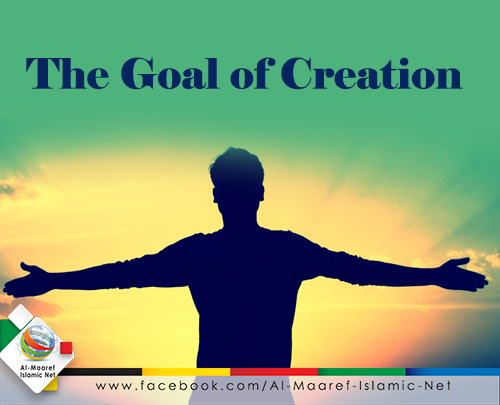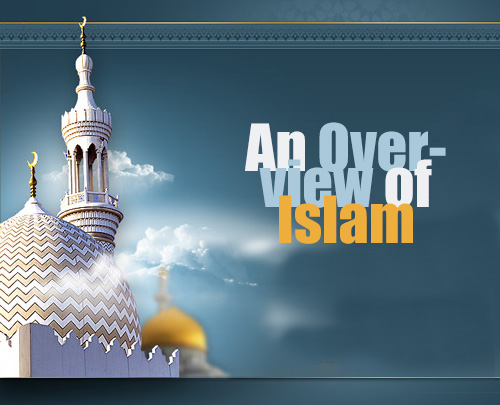Faith
Definition Man's effort and movement, which are the very reasons of his existence, have a starting point and a jumping platform. That is called FAITH. Faith means to accept and to believe in what man is trying for, in the way which leads him to that aim and, finally, in his very effort and movement.
Without faith every movement or efforts are evanescent and fruitless. Without faith searchers become discouraged and mirthless and, as a result, they become dumb, stagnant and motionless. Taking this reality into consideration, the Qur'an emphasizes "faith" and "the faithful" and introduces this characteristic as the supreme value which stands at the peak of all human characteristics.
Now let us meditate on the list of the most important Islamic values and on the dignity of faith, which enjoys the highest rank among them, in the following verse:
It is not piety, that you turn your faces to the East and to the West.
True piety is this:
To believe in God, and the last Day, the angels, the Book, and the Prophets, to give of one's substance, however cherished to kinsmen, and orphans, the needy, the traveler, beggars, and to ransom the slave, to perform the prayer, to pay the alms. And they who fulfill their covenant when they have engaged in a covenant, and endure with fortitude, misfortune, hardship and peril, these are they who are true in their faith, these are the truly Godfearing. (2:177)
In this way, in response to the believers of the Bible, who regard Judaism or Christianity as the only way of salvation, the Qur'an lays emphasis on the vast Islamic faith as the cause of man's salvation:
Say you: ﴾We believe in God, and in that which has been sent down on us and sent down on Abraham, Ishmael, Isaac and Jacob, and the Tribes, and that which was given to Moses and Jesus and the Prophets, of their Lord; we make no division between any of them, and to Him we surrender.' And if they believe in the like of that you believe in, then they are truly guided. (2:135-136)﴿
Conscious Faith
In this regard, the following subjects are to be seen in the Qur'an:
1. Having faith in the principles and foundations of the religion is one of the outstanding characteristics of the Prophet of God and his true followers. It is so outstanding that the Qur'an has specifically emphasized on it, saying:
The Messenger believes in what was sent down to him from his Lord, and the believers; each one believes in God and His angels, and in His Books and His Messengers; we make no division between anyone of His Messengers. They say, 'We hear, and obey. Our Lord, grant us Thy is the homecoming'. (2:286)﴿
2. Faith arises from understanding, intellect and knowledge; it is not a blindfold and imitative belief. This very particularity distinct faith from other vulgar devotions which are often absurd, fading and devoid of any action.
In the following verses an evident indication of this kind of understanding can be observed:
Surely in the creation of the heavens and earth, and in the alteration of night and day there are signs for men possessed of minds who remember God, standing and sitting and on their sides, and reflect upon the creation of the heavens and the earth. 'Our Lord, Thou hast not created this for vanity. Glory be to Thee. Guard us against the chastisement of the Fire.
Our Lord, whomsoever Thou admittest into the Fire, Thou wilt have abased. and the evildoers shall have no helpers. Our Lord, we have heard a caller calling us to belief saying, "Believe you in your Lord. And so we believe." (3.1.90-192) 3.
Only an enlightened mind can perceive this knowledge and understanding; otherwise, faith would turn into a petrified and foolish bigotry and the way to truth and salvation would be blocked for man. This is why the Qur'an seriously condemns the bigoted and imitative faith of pagans. Let us consider the rebuking and meaningful tone of the following verse:
﴾And when it is said to them, 'Come now to what God has sent down, and the Messenger, they say, 'Enough for us is what we found our fathers doing.' What, even if their fathers had knowledge of naught and were not guided? (5:104)﴿
Dynamic Faith Twinned With Action
Does faith mean just an abstract belief or thought? Is faith worthy of consideration as far as it is dynamic and decisive in shaping our life.
The Qur'an always associates faith with action and regards it a motivation for crossing the way to the desired destination. In many verses of the Qur'an rewards of this and the next world are dependent upon the faith twinned with action. Listen to the Qur'an and think about what it says here:
O men, bow down and prostrate yourselves, and serve your Lord, and do good, happiness, and struggle for God as is so you shall prosper.
His due, for He has chosen you, and has laid on you no impediment in your religion, being the creed of your father Abraham'. He named you Muslims aforetime and in this, that the Messenger might be a witness against mankind.
So perform the prayer, and pay the alms, and hold your fast to God, He is your protector - an excellent Protector, an excellent Helper. (22:77-78)
In the above verses the most important peculiarities of religious belief which are victory, success, superiority, leadership of human beings and, finally, the support of God, are dependent upon the dynamic faith twinned with action.
The following verse reminds us of actions resulting from faith and specifies the role of dynamic faith in an Islamic society:
﴾Those who believe, and have emigrated and struggled with their possessions and their selves in the way of God, and those who have given refuge and help-those are friends one of another. And those who believe, but have not emigrated-you have no duty of friendship towards them till they emigrate. (8:72)﴿
Faith And Its Responsibilities
According to the verses mentioned previously true faith is inseparable from action. Profiteers do not consider the responsibilities of faith as an obligatory promise. They accept these responsibilities as far as they are in harmony with their personal interests. Otherwise, they would not take care of these responsibilities at all.
In the culture of the Qur'an these people, who may have some sincere faith in their hearts, stored for the days of distress, are called faithless and disbelievers. The Qur'an promises salvation, prosperity, victory, superiority, to the faithful who, under all conditions, are attentive to the responsibilities of faith.
The following verses are the clear voice of the Qur'an in this regard:
﴾Now We have sent down signs making all clear, God guides whomsoever He will to a straight path. They say, 'We believe in God and the Messenger; and we obey.' Then after that a party of them turn away, those-they are not believers. When they are called to God and His Messenger that he may judge between them, lo, a party of them are swerving aside, but if they are in the right, they will come to him submissively. What, is there sickness in their hearts, or are they in doubt, or do they fear that God may be unjust towards them and His Messenger? Nay, but those-they are the evildoers.
All that the believers say, when they are called to God and His Messenger, that he may judge between them, is that they say, We hear, and we obey; those-they are the prosperers. (24:46-52)﴿
And finally, in the following two verses, the Qur'an gives the pleasing promise of establishing the Divine government and ideal Islamic society over the world to those true believers whose deeds are decent and tied with faith:
﴾God has promised those of you who believe and do righteous deeds that He will surely make you successors in the land, even as He made those who were before them successors, and that He will surely establish their religion for them that He has approved for them, and will give them in exchange, after their fear, security: 'They shall serve Me, not associating with Me anything.' (24:55)﴿
* THE GENERAL PATTERN OF ISLAMIC THOUGHT IN THE QUR'AN. By: SAYYED ALI KHAMENEI. Translated by: Alireza Anoushiravani




















